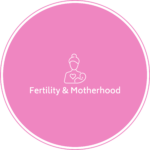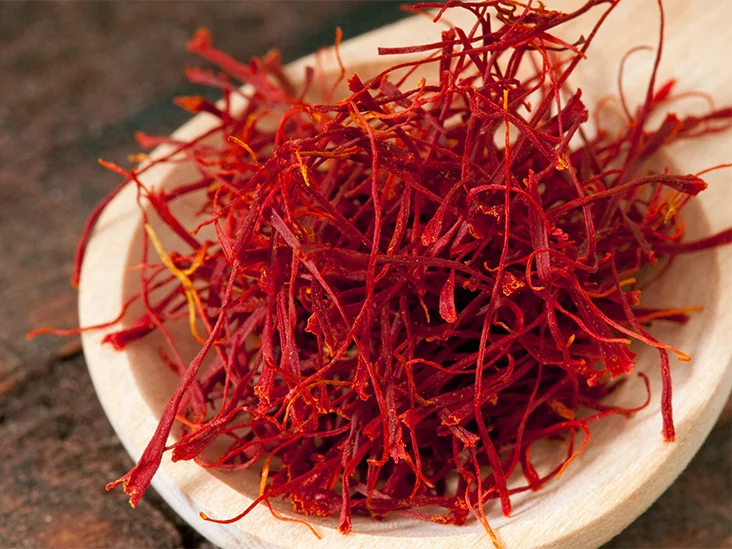In the realm of fertility-boosting herbs, saffron shines as a golden spice known for its exquisite flavor and remarkable benefits. This treasured spice has been revered for centuries and is now gaining recognition for its potential to enhance female fertility. Join us as we uncover the wonders of saffron and discover how it can contribute to a blossoming fertility journey and joyful conception.
Unveiling Saffron
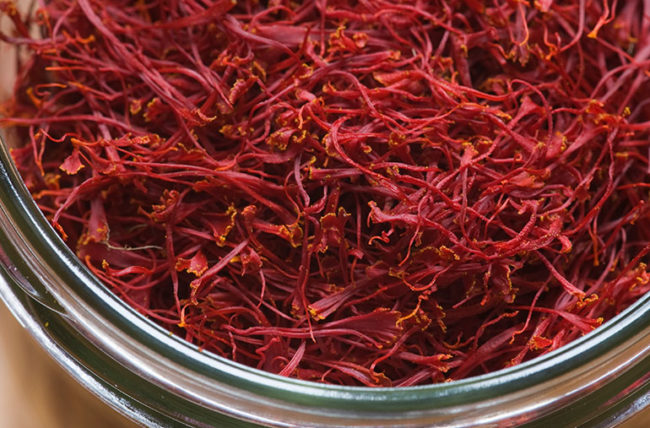
Saffron, scientifically known as Crocus sativus, is derived from the vibrant red stigmas of the crocus flower. Widely known for its culinary use, saffron holds a special place in traditional medicine due to its medicinal properties. It has a rich history dating back to ancient civilizations, where it was esteemed for its various health benefits, including its potential to support female reproductive health.
The Fertility-Enhancing Effects of Saffron
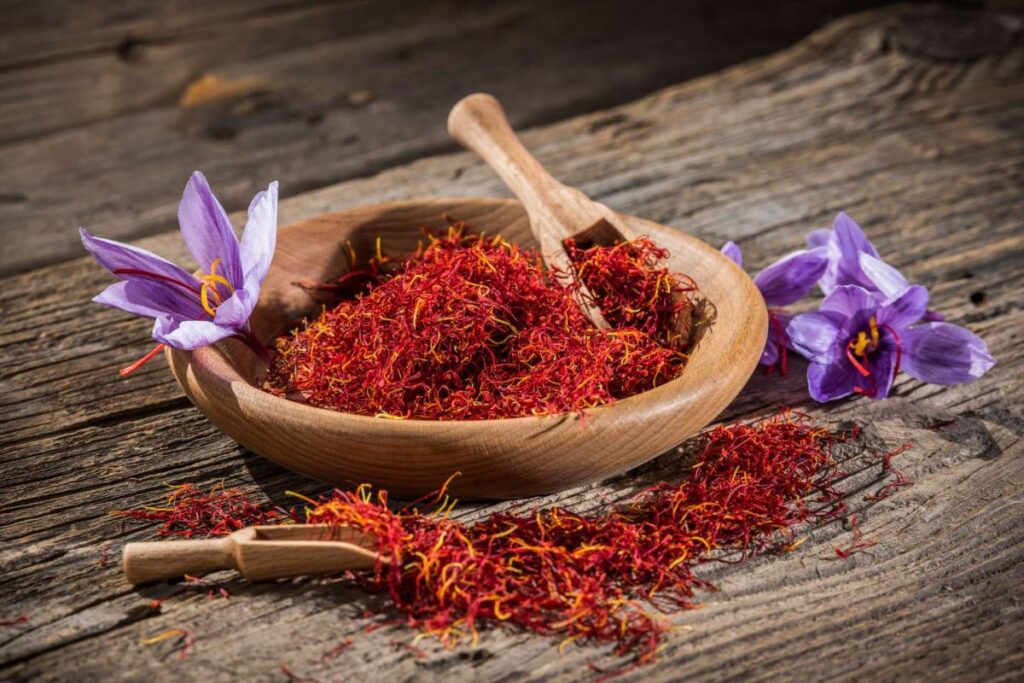
Saffron contains an array of bioactive compounds, including crocin, safranal, and crocetin, which contribute to its fertility-enhancing effects. These compounds possess antioxidant and anti-inflammatory properties that may support reproductive health.
Scientific studies have shed light on the potential fertility benefits of saffron. A study published in the *Avicenna Journal of Phytomedicine* indicated that saffron extract improved the reproductive parameters in female rats by enhancing ovarian function and regulating hormonal balance [1]. Another study published in the *Journal of Ethnopharmacology* demonstrated the positive effects of saffron on female reproductive health, including its ability to regulate the menstrual cycle and promote ovulation [2]. These findings provide scientific support for the traditional use of saffron in promoting fertility.
Incorporating Saffron into Your Routine

Saffron can be incorporated into your daily routine through various means. It can be infused in warm water to create a flavorful saffron tea, or added as a culinary spice to enhance the taste and color of dishes. Additionally, saffron supplements or extracts are available in capsule form. It’s important to follow the recommended dosage provided by the manufacturer or consult with a healthcare professional for personalized guidance.
Success Stories and Testimonials
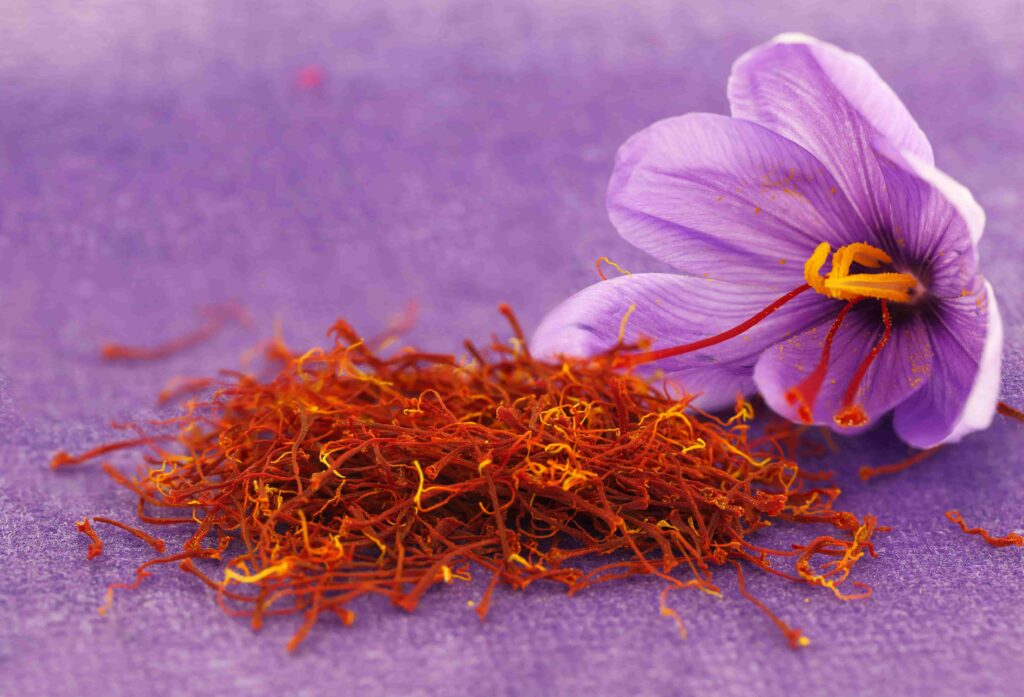
While individual experiences may vary, many women have shared success stories and positive experiences with saffron in supporting their fertility journey. They have reported improvements in menstrual regularity, ovulation, and overall reproductive health. These testimonials highlight the potential benefits of saffron in enhancing female fertility and fostering joyful conception.
Additional Health Benefits of Saffron
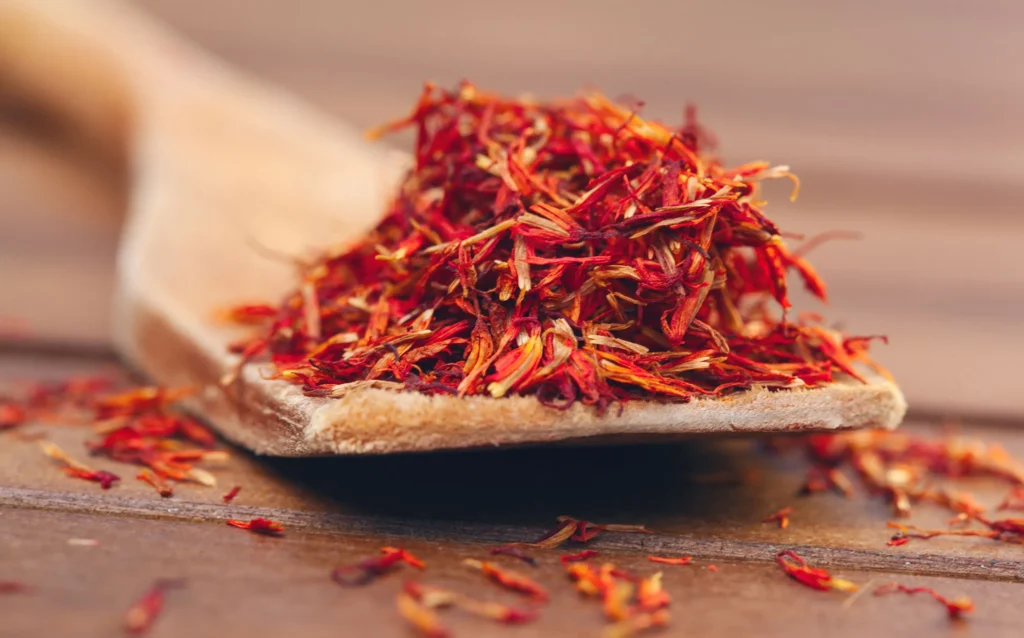
Beyond its fertility-enhancing effects, saffron offers additional health benefits. It possesses antioxidant properties that help protect against oxidative stress and promote overall well-being. Saffron has also been associated with mood-enhancing effects, potentially supporting emotional well-being during the fertility journey.
Conclusion
Saffron, the golden spice of ancient traditions, holds the potential to enhance female fertility and contribute to joyful conception. Its bioactive compounds, antioxidant properties, and traditional use provide a solid foundation for its fertility-boosting effects. Scientific studies support its positive impact on ovarian function, hormonal balance, and reproductive health.
References:
[1] El-Dakhly, K. M. R., et al. (2015). The potential role of saffron against reproductive problems in rats. *Avicenna Journal of Phytomedicine*, 5(5), 441-449.
[2] Modaresi, M., et al. (2018). Protective effects of saffron extract against dose dependent and time dependent reproductive disorders and oxidative stress in cyclophosphamide treated rats. *Journal of Ethnopharmacology*, 213, 98-107.
